Viridiana is one of the best films in the history of cinema, the best work of one of the giants of celluloid, Luis Buñuel, but it is also much more than that.It is the poisoned gift that this exiled gave to the Franco regime and which showed that the man who had gone with his pockets full of stones to the premiere of Un perro andaluz (1929) still had the same desire to provoke at the age of 60 as he did at the age of 30.
And if the film is a marvel in itself, everything about it is fascinating: how it came to be made, how Buñuel returned to his home country, how it got around censorship and how the Franco regime, which considered itself the guarantor of the Catholic religion in the West, won the most important prize at the Cannes Film Festival with a film that was considered blasphemous by the Vatican.
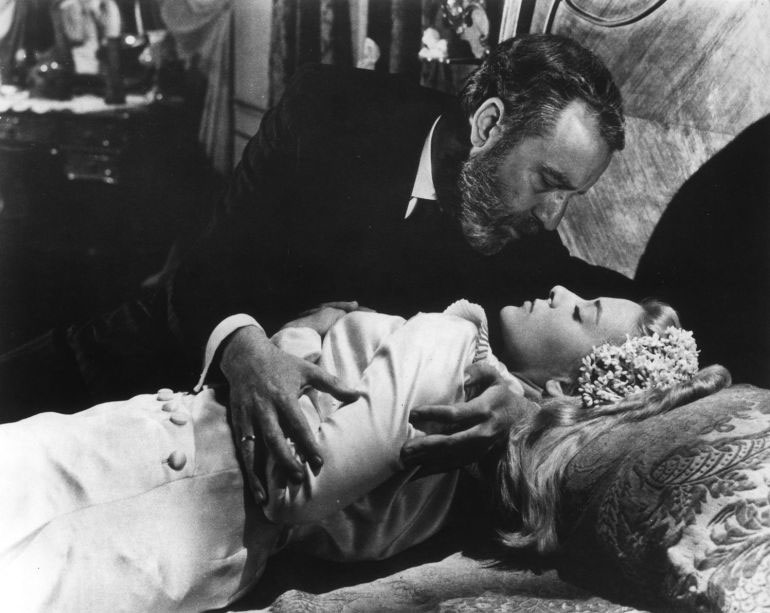
What started out as a panty-dropping by much of the Republican exile ended up with its protagonist becoming a hero, always doing whatever he wanted and returning to the scenes of his youth, Madrid and Toledo, where he spent the most important years of his life, Buñuel delivered a film that was erased from history by the regime and could only be seen in the country in which it was made 16 years after it was shot, when Franco had been dead for two years.
A triple comic vignette became famous in which, in the first, Francisco Franco is seen laying a carpet for Buñuel’s return, while, in the background, someone can be seen shouting Buñuel, you’re a provocateur!; in the second, Buñuel hands Franco a gift in a box with Viridiana written on it, and leaves, the character in the background continues to do his own thing: Death to Buñuel; in the third, the package explodes in the dictator’s face and the character in the background is totally surprised. It is a perfect summary of what that return of our most important filmmaker meant.
So let’s start with the moment when the reunion began to take shape. Buñuel had decided to bring Benito Pérez Galdós’ Nazarín (1959) to the big screen and he set his sights on a Spanish actor who seemed perfect for the role, Paco Rabal. The actor from Murcia went to Mexico with a bottle of Valdepeñas wine and an antique blunderbuss as a gift and won the director’s friendship forever. From that moment on, they called each other uncle and nephew and their complicity was absolute. Rabal wrote to his wife about how he discovered Los olvidados (1950) and was impressed by that “Maño” who seemed to him to be as brilliant as Goya.
The fact is that Nazarín was very well received by both critics and audiences, but it was also well received by the ecclesiastical hierarchy, who did not (or did they?) see that Buñuel was criticising the insufficiency of Christian charity and how the ecclesiastical hierarchy would confront Jesus himself if he appeared in those times. The fact is that the film won the Jury Prize at the 1959 Cannes Film Festival and was also nominated for the International Catholic Film Office prize in Cannes.
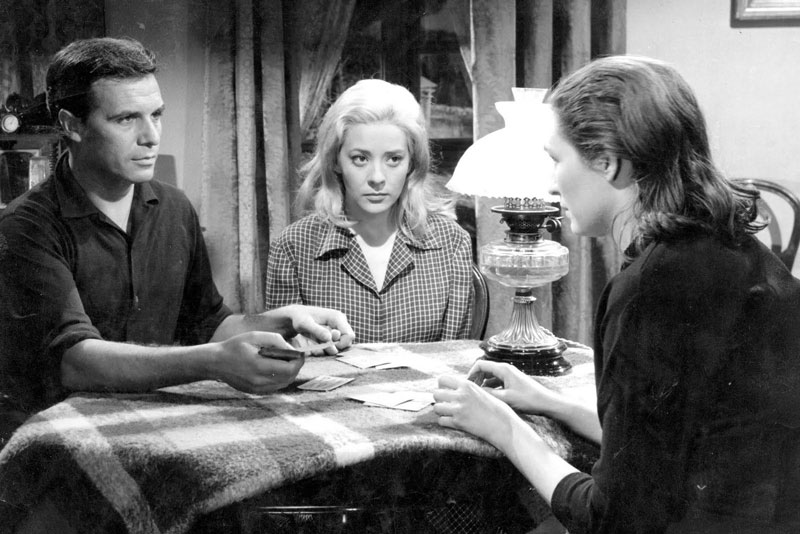
Buñuel was definitely delighted with Rabal and wanted him for his next project, Ángel Guerra, another adaptation of Galdós. There is talk, above all, of being able to make it in Spain. The project did not come off, but Buñuel did not forget Rabal, nor Galdós. In May 1960, the director was again in Cannes, presenting La joven and decided to write to his “nephew” to ask him to pull some strings to get into Spain, as he was very close and his mother was ill in Zaragoza. The actor did so and met an admirer of his work and a friend at the Spanish consul in Paris.
After 22 years Luis Buñuel was returning to a country which, as he admitted to Rabal, was unknown to him, which was not the one he had known. He was reunited with his family, first with his sister in Barcelona and then with his mother in Zaragoza. He did not forget to write to Rabal to thank him for getting him the visa that would prevent me from being garrotted in Spain and to tell him that he would be in Madrid in June. In Cannes he had met Carlos Saura and had made contact with some of the Uninci production company who were communists like him, but his visit was more personal than political. He toured the places where he had been happiest, the Madrid of the Residencia de Estudiantes and, of course, his beloved Toledo.
It was at that time that Rabal decided to introduce him to two Mexicans who wanted to make him a proposal. They were the actress Silvia Pinal and her husband, the tycoon Gustavo Alatriste. She had starred in several successful films in her native country and was now starring in Europe, in Spain and Italy; she had been on the point of starring in Tristana with Buñuel, but the project did not go ahead. When Alatriste told her to ask for whatever she wanted, the actress didn’t hesitate: I want to make a film with Buñuel.
The director was surprised by the proposal and told the producer that he made totally personal films and that he was also an expensive director. Alatriste, totally enamoured, told him Make the film you want and tomorrow you will have your usual salary plus a little more. They signed nothing but there was a gentleman’s agreement.
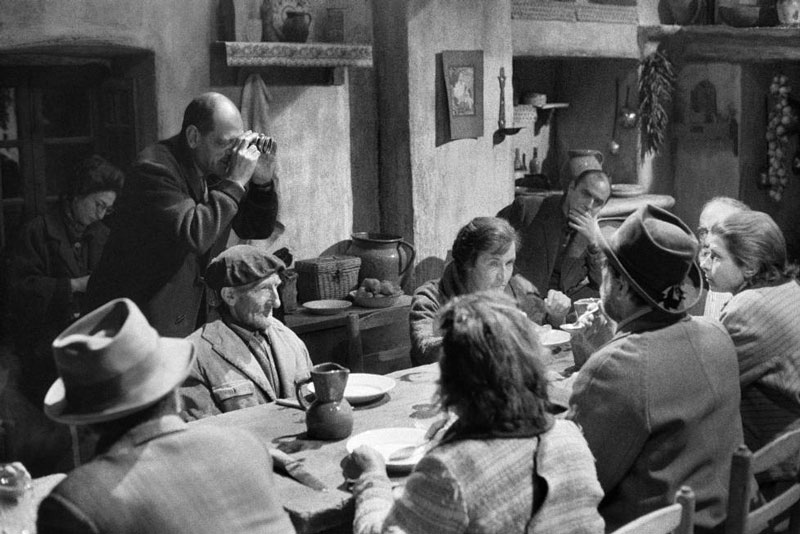
Buñuel returned to Mexico and set to work with his usual collaborator on the script, Julio Alejandro, another Spanish emigrant with whom he had already collaborated on Abismos de pasión and Nazarín. As on previous occasions, it all began with a dream of Buñuel’s, in this case the adolescent Buñuel who, obsessed with Queen Victoria Eugenia, imagined himself sneaking into the Royal Palace, pouring a sedative into her milk bath and then taking advantage of her. Alejandro made her a novice and Buñuel named her Viridiana, after a Saint he remembered from his school days, and created the character of Don Jaime, the Spanish hidalgo who lives locked in his own world. The film ended with Don Jaime unable to force himself on Viridiana and committing suicide after her rejection.
It was then that Galdós entered the equation again, in this case his novel Halma, although also taking things from Ángel Guerra‘s project, Viridiana will seek to redeem herself by trying to help some beggars who will end up with a fantastic bacchanal. To maintain the sexual tension, they introduce the character of Don Jaime’s bastard son. Everything takes shape quickly when at that moment he is presented with the opportunity to shoot in Spain, Alatriste tells him that economically he is better off and Buñuel convinces him to work with the people of the Uninci, among whom are Pere Portabella, Juan Antonio Bardem and Domingo Dominguín, who are the ones who get the permission for his return from a regime willing to be seen as open-minded and to welcome as the prodigal son that famous republican who had been praised a year earlier by the Catholic Office.
Alejandro had to rewrite the script under Buñuel’s supervision to adapt it to the Spanish of Spain and make a first version “white” enough to pass the first cut of Franco’s censorship. Buñuel wrote to Portabella: The subject is original and represents the inevitable continuation of my usual line. It is full of intentions, but in form it may seem to be a semi-white film and, as far as possible, it is commercial. The most important things, which are the details, do not appear in the synopsis. I have great faith in the character of the shy Don Jaime and in the behaviour and reactions of the beggars, especially in the final coven.
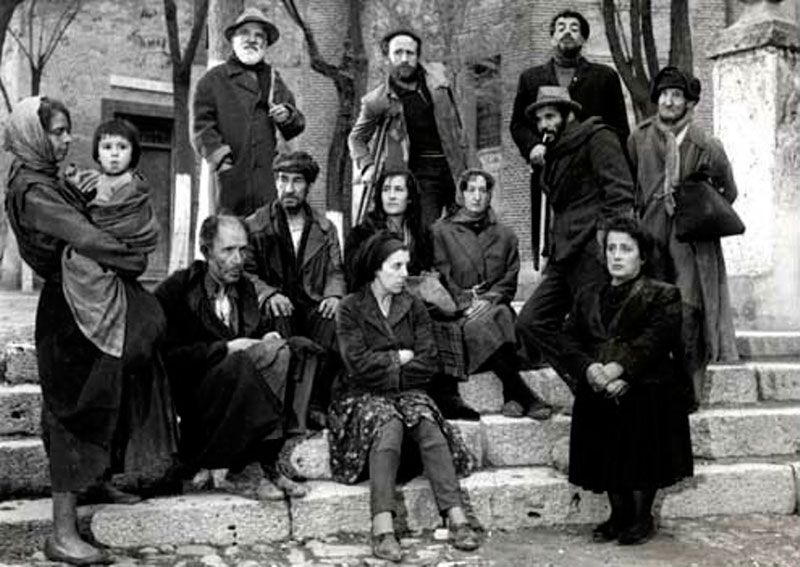
It is clear that the Aragonese already has the film quite clear in his mind, the censorship gives the go-ahead with a few tweaks, the film cannot end with the virginal Viridiana entering a man’s room, it has to be changed. Buñuel sees the opportunity for an even more scandalous ending, a ménage à trois that he will leave implicit in this sentence: You won’t believe this, but the first time I saw you I said to myself: My cousin Viridiana will end up playing “tute” with me.
The censors are only told that the man will be accompanied by another person, the new ending passes the test. In the end Buñuel would shoot both, in the first one the housekeeper walks out the door and leaves them alone, in the second one she stays and plays the game with Viridiana and her cousin. The director asks the crew which ending they like best, the vote is unanimous, the censorship one wins.
Buñuel returned to Madrid in November 1960 and stayed on the 17th floor of the Torre Madrid, accompanied by the care of his favourite sister, Conchita. Again, contact with his native country would bring new things into the film. His routine was simple, he worked there and from time to time he looked out of the window to admire the views, the mountain, the Royal Palace or the Casa de Campo. He seemed happy remembering his student years.
When he began researching costumes and locations, he would get up at five in the morning and spend the day walking around the city and its surroundings, many of the things that appear in Viridiana come from those walks, the knife-crucifix, the actor who plays the leper, who was a real beggar he met in the metro, or the dogs savagely tied to carriages. His only distraction, some of the nearby bars, with a preference for Chicote on Gran Vía.
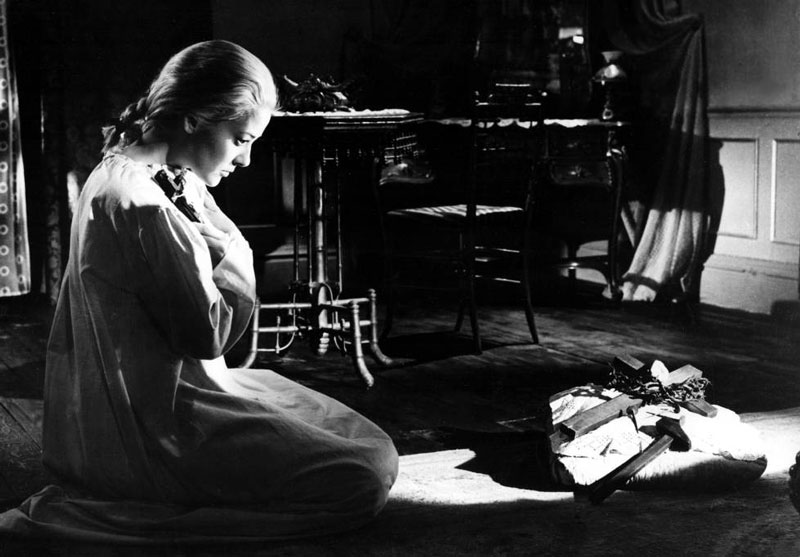
For the main actors, he chose Fernando Rey, who would become a friend and regular in his films, for Don Jaime, because of his distinguished appearance, while the bastard son went to his “nephew” Rabal. Among the rest of the actors he cast Lola Gaos, Margarita Lozano, María Isbert and Teresa Rabal, Paco’s nine-year-old daughter. He reserved the role of Rita for her, a little girl whom Fernando Rey’s character looks at libidinously, Buñuel’s explanation to Rabal was I really like that your daughter’s innocent eyes see the vice, the determination of this man…
Shooting finally began in the first week of February 1961 and the crew knew from the very first moment that they were shooting something unique and also dangerous. Buñuel put in everything that did not appear in the script, the famous scene in which the beggars perform the Last Supper, with Handel‘s Messiah playing in the middle of a bacchanal that almost ended with the rape of the protagonist. Incredibly, Don Luis, as all the members of the film crew called him, would also find out if anyone connected with the filming was coming beforehand and would change the plans so that they would only see what he let them see.
For the officials who were watching the whole thing, the film was nothing more than a little pink novel with saints, none of them seemed to realise what a time bomb Buñuel was cooking up. The only incident during filming was on 4 April, when the director was absent to attend the funeral of his younger brother, Alfonso, in Zaragoza; his mother, who was suffering from Alzheimer’s, was not even aware of it.
Before filming was completed, the Cannes Film Festival became interested in Buñuel’s Spanish film and invited him to participate in that year’s festival, which began on 3 May and ended on the 18th. The film was finished at the end of April and, once it was finished, suspicions began to grow that heads would roll when the film was seen. Just in case, it was decided to take a copy of the negative out of Spain in the most bizarre way. Juan Luis, Buñuel’s eldest son, went to Barcelona with Domingo Dominguín and took the negatives to France between the capes of the bullfighter Pedrés.
Meanwhile, in Madrid, Buñuel said that there was no good studio to do the sound for the film and proposed one in Paris. Some screenings were organised to approve the film, but the version they saw was not the finished one. Juan Antonio Bardem was responsible for removing some of the most controversial moments, such as the knife crucifix or the moment when Lola Gaos lifts her skirts to take “the photo” of the Last Supper. Of course, the coven of beggars is there, when Bardem is asked about the music, he lies and instead of telling them about Handel’s Messiah, he tells them that Buñuel doesn’t like music in his films and that he will probably play the drums of Calanda.
The reaction is bad, they think Buñuel is senile, but they don’t see the scandal, the board of producers think it’s not good enough to represent Spain at Cannes, after a phone call, the festival reaffirms its invitation to Buñuel, the director leaves for France with another copy and manages to edit it and sound it in time to premiere it on the last day of Cannes. He did not attend the festival, however, as he was ill, or so the official version goes.
Viridiana was a marvel in which Buñuel was implacable in his treatment of sanctimony, fetishism, false Christian charity and cynicism. His beggars were like the poor in The Forgotten, they served to depict the reality of poverty and the abandoned of bourgeois society for what they were, a breeding ground for misery, violence and marginality. A place impossible to leave, once you are born into it.
It was a totally free and irreverent film and came to represent a country whose regime was the complete opposite. To make matters worse, despite the fact that the jury had already decided on the list of winners, it was decided at the last minute to give it the big prize, the Palme d’Or, ex aequo with Henri Colpi‘s A Long Absence. As Buñuel was not there, the Uninci, looking for a back-up against possible reprisals, persuaded José María Muñoz Fontán, the director general of Spanish cinematography, to collect the prize. Spain had won the Cannes Film Festival (something that, by the way, has never been repeated).
The next day the scandal was amplified into the stratosphere when L’Osservatore Romano, the Vatican’s official newspaper, declared Viridiana blasphemous. When poor Fontán landed in Barajas, he was immediately removed from his post and the official position of the regime was that the film had never existed, and all copies in Spain were destroyed, although Franco first decided to see the film that had made him look ridiculous in front of half the world. At the end of the film, the dictator does not see the need to make such a fuss about what, in his opinion, is nothing more than a collection of amateurish jokes. In his autobiography Buñuel would not forget to comment on this anecdote, To tell the truth, after all that his eyes had seen, this film must have seemed very innocent to him.
The bomb had exploded and in its propagation Buñuel had a totally surprising ally, the Pope. When, some time later, he was asked whether his main intention with Viridiana had been to be blasphemous or simply to shock, the author of The Golden Age, another film made to challenge bourgeois values, replied: I did not deliberately set out to be blasphemous, but Pope John XXIII is a better judge of these things than I am.


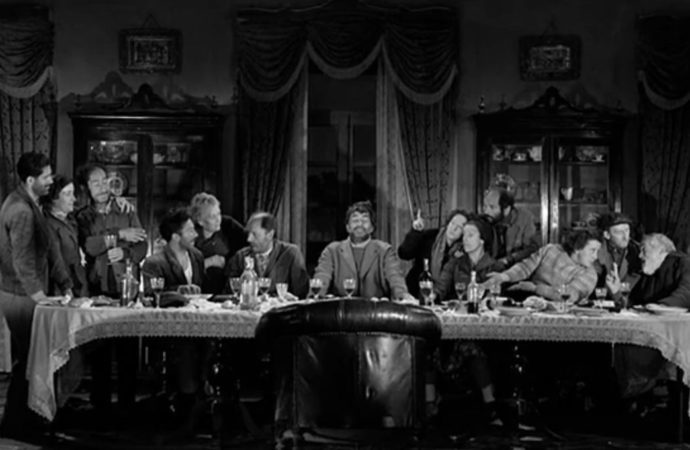

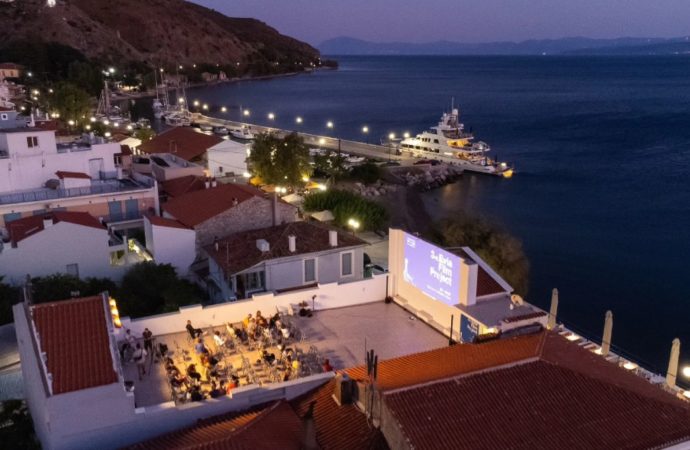
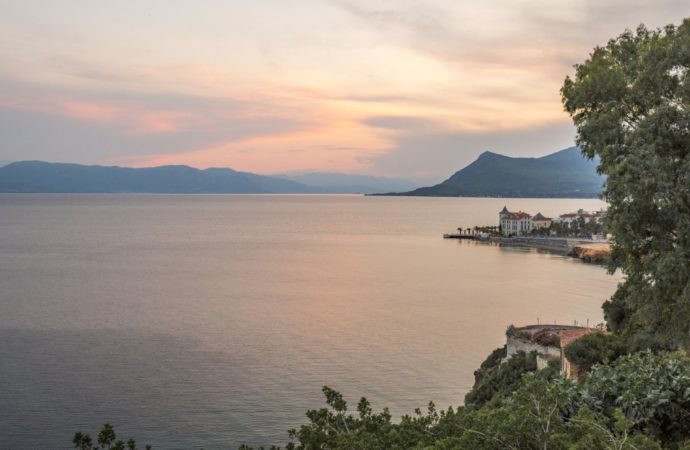
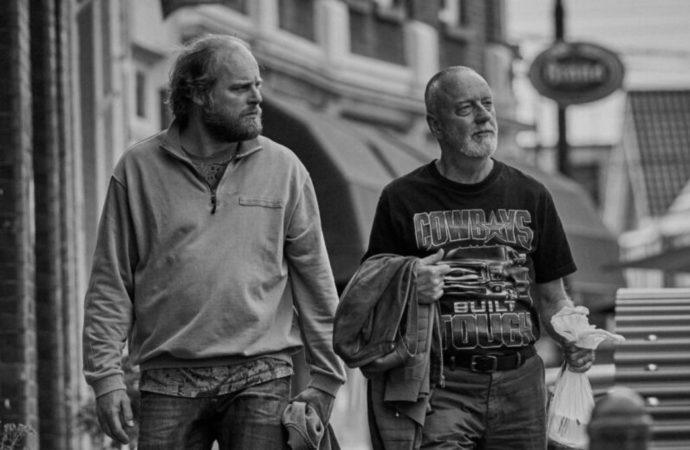
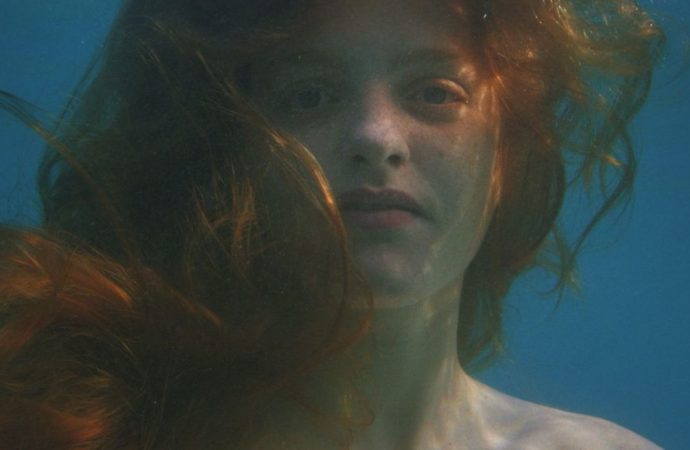
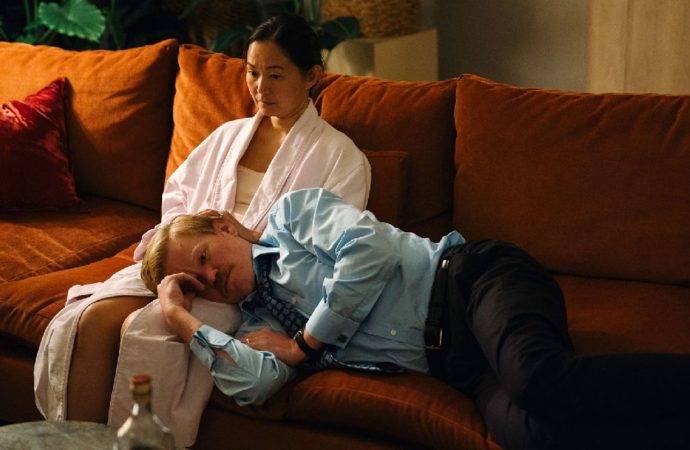
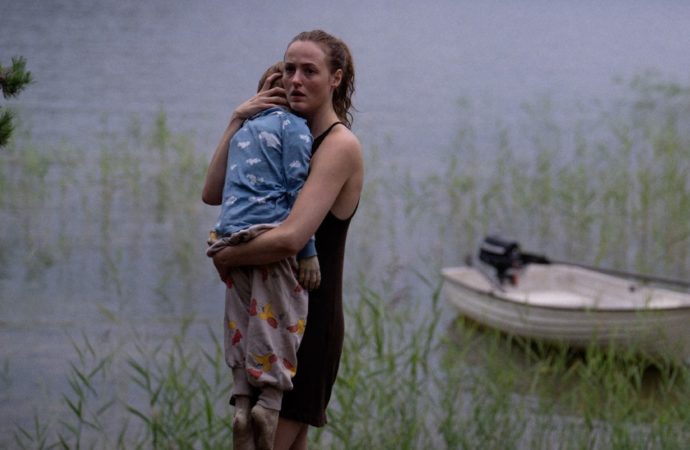

No one has posted any comments yet. Be the first person!